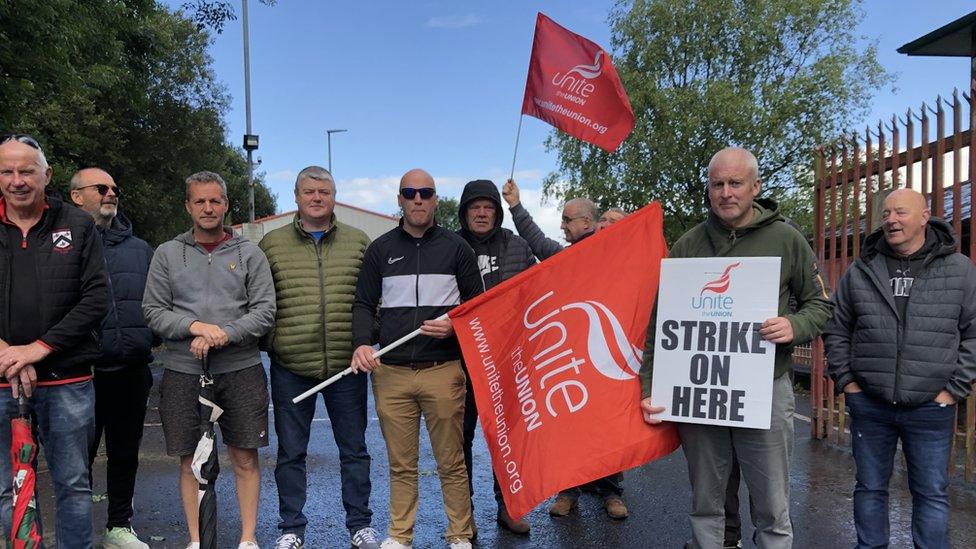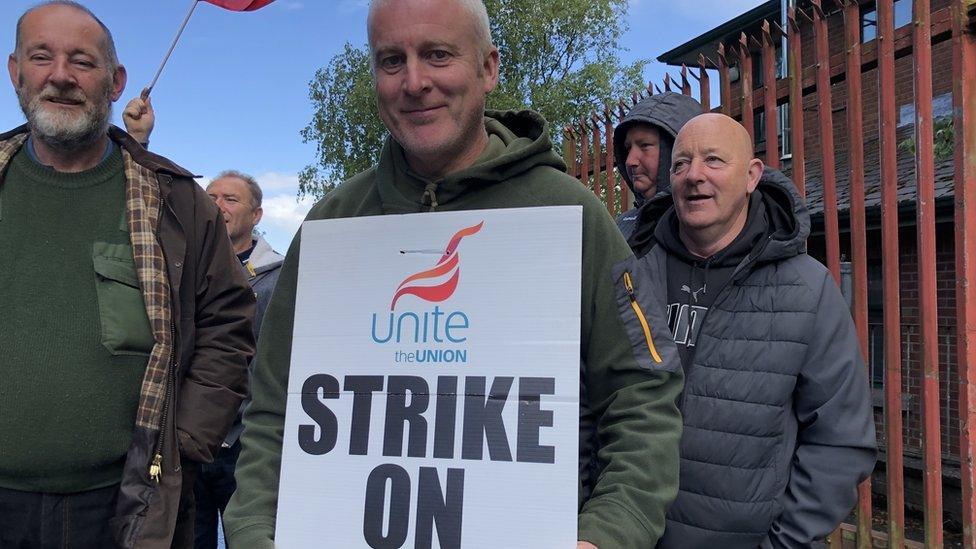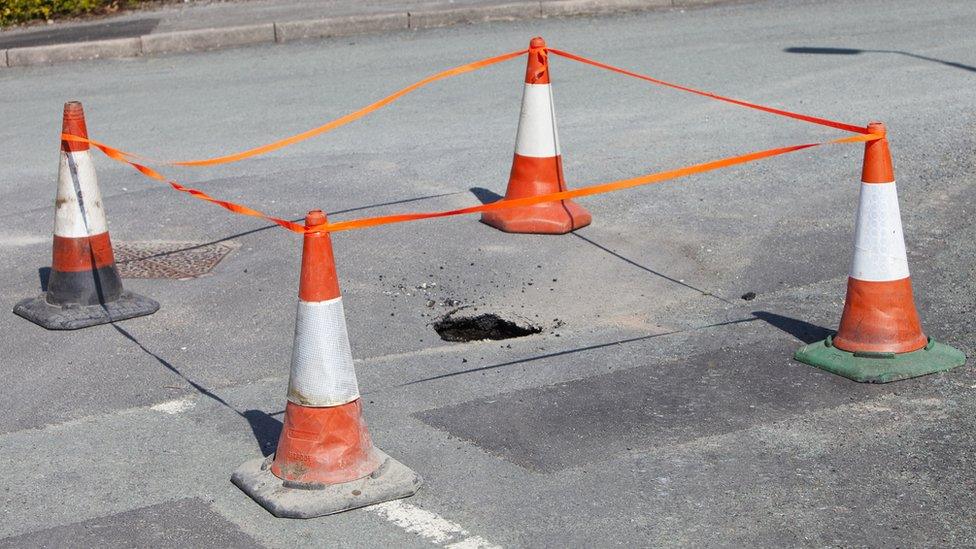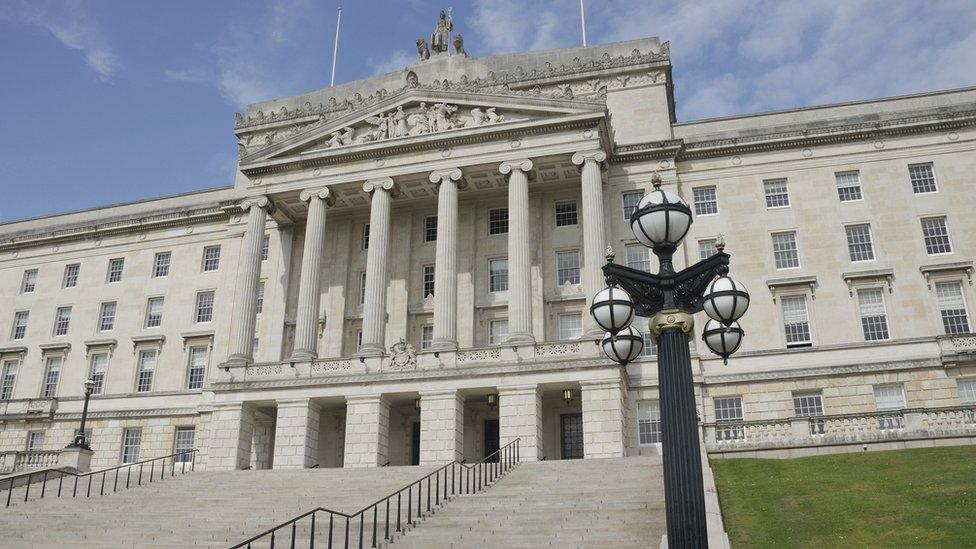NI roads service workers begin two weeks of strike action
- Published

Union members at the Woodburn depot in the Waterside in Derry
Roads service workers in the GMB and Unite unions across Northern Ireland have begun two weeks of strike action.
The industrial action began with walkouts in Londonderry, Limavady, Strabane, Omagh and Enniskillen.
It is part of an ongoing dispute over pay and the implementation of a productivity bonus which last saw workers strike in April.
The Department for Infrastructure said it could impact road users, especially in emergencies such as flooding.
Regional organiser of the GMB union, Alan Perry, said Northern Ireland's Department of Finance had imposed the 2022/23 pay offer of a "derisory £552 on to our members".
"Our members will not be carrying out all types of road maintenance including filling potholes [and] grass cutting for the next two weeks," he told BBC Radio Ulster's Good Morning Ulster.
The Department for Infrastructure (DfI) is facing budgetary challenges and a 14% cut in its day-to-day spending budget compared to last year.
"We believe the secretary of state has failed to address the issues around the budget cuts," said Mr Perry.

"They need to make money available - we see our counterparts in England received an additional £1,500 as of last week.
"Clearly the concerns of our members here are - why are they being treated differently? At the moment there is nothing on the table for them," he said.
"It is unfortunate that there may be an impact to the general public - hence why we are calling on the secretary of state and the department to address this ongoing issue so these types of things don't happen," he added.
'Not acceptable'
He said members had had "no option" but to strike.
"They are taking action where they see the department has failed to address the current cost-of-living crisis.
"An insulting £552 per year for someone who is just above the minimum wage is not acceptable."
Colin Sykes, who is Road Asset Maintenance Director at the DfI, said the action affected only selected depots.
"It's a period of two-week industrial action but it doesn't cover every area at every time," he told the programme," he said.
"We have been contingency planning around this - we have some ability to redeploy staff from those depots that are not taking part in industrial action into some of the areas that we may possibly need them in."
He added: "We are also able to bring in external contractors to support some of those functions carried out by our industrial workforce."
He said there would be an additional cost for this.

The Department for Infrastructure urged road users and those at risk from flooding to be "extra vigilant while travelling and to be prepared for severe weather in the event of unforeseen incidents".
"Members of the public are advised there will be a reduced level of the essential services which are routinely delivered by DfI staff on the road network and as part of flood response," a statement said.
The department said affected services included:
Assistance to those incidents with most impact to life and property
Response and clear-up operation when there are incidents on the road such as oil spills or unexpected debris or bonfire material
Repair of serious defects such as manhole collapse or potholes
Gully clearing and cleansing
Response to calls to the flood incident line
Response to flood emergencies.
The department said contingency arrangements were in place but would not replace the full maintenance service and asked the public to be mindful of this.
On Sunday the union Nipsa said civil servants in Northern Ireland were considering a general strike over pay in September.
Related topics
- Published27 February 2023

- Published23 May 2023

- Published2 July 2023

- Published1 August 2023
